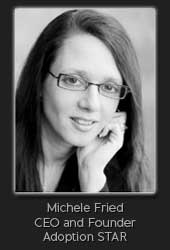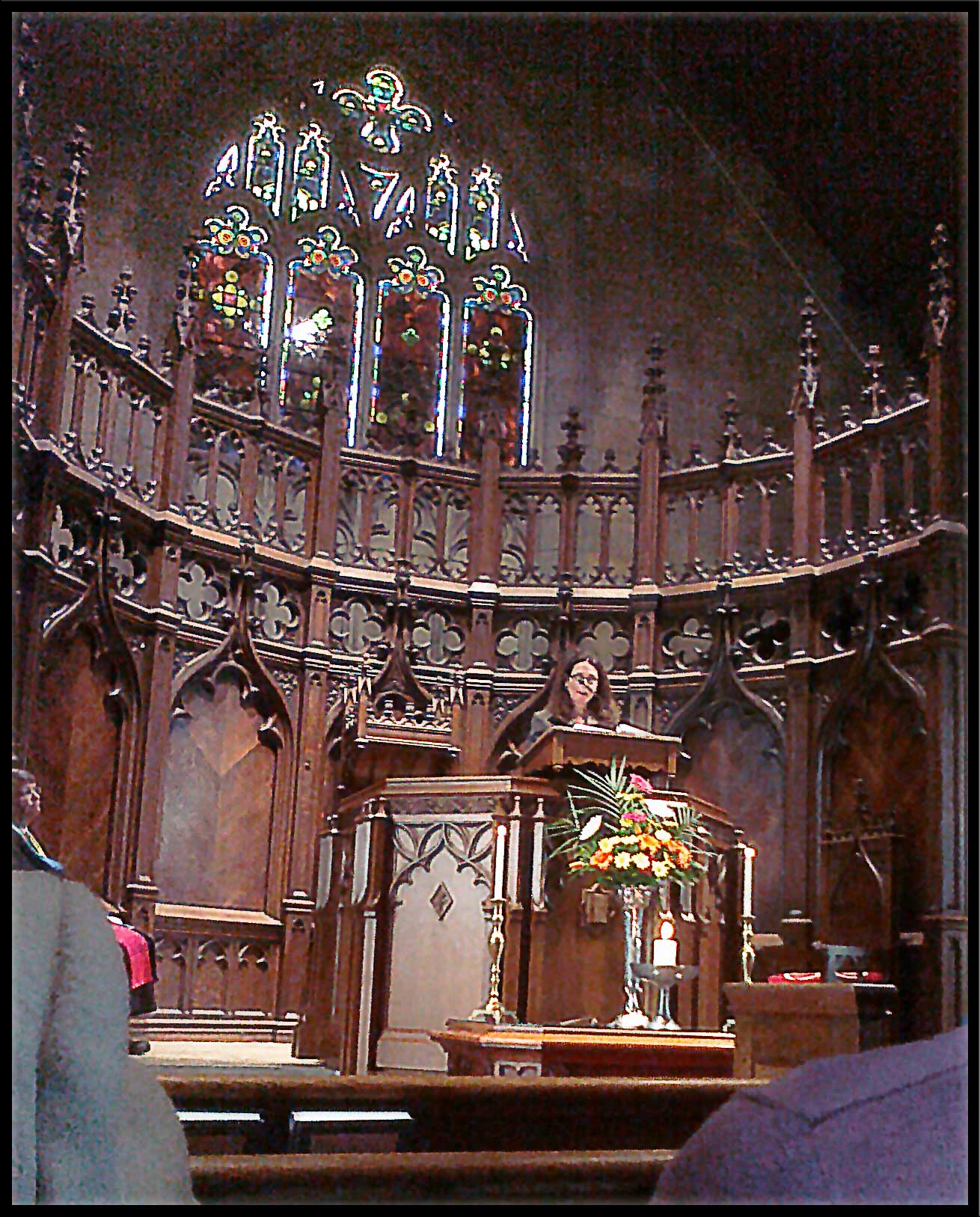
CEO and Founder Michele Fried re-accounts her visit to a historical church in downtown Buffalo and its connection to Hungary, one of the two countries in Adoption STAR’s pilot program.
In January of 2011, I was invited to take a look at the beautiful sanctuary in The Unitarian Universalist Church located on Elmwood Avenue in Buffalo, New York. It was the very first time I was there, yet it felt familiar to me. I mentioned this to the Reverend and added that it reminded me of churches I visited in Eastern Europe. When asked where specifically, I answered Hungary. It was then I learned that the Unitarian Universalist Church has roots in Hungary. Unitarians trace their roots back to Transylvania in the 1500s. The largest concentrations of Unitarians outside the United States are in Transylvania — now part of Romania and Hungary.
My genetic roots are not tied to Hungary. Neither of my parents had Hungarian ancestors. Yet at the very moment I stood in this church, the Five Books of Moses were being rebound in a Budapest synagogue and were to be dedicated in memory of my father, Rabbi Joseph Poisson, who had recently died. Hungary, who lost countless Jews during the time of the Holocaust, barely has a Jewish community. Yet strives to survive to have a Jewish identity today.
I have come to love the country, the culture, the people and the language. Hungary is the country my brother chose to make his home and where my nieces are being raised. It is a country where one of our son’s is living and working. It is a country our agency chose to begin an international adoption program in. It is a country I continue to visit. And so without biological roots, in essence I have adopted this country. It is now a part of my identity.
Ironically, my husband’s family on his father’s side is Hungarian so my children do have roots in Hungary even without my influence. Together my husband and I have nine children by both adoption and birth. Are our biological children more connected to Hungary because this culture can be traced to their DNA or are our adopted children touched by this culture just as much as I am?
Talking about heredity versus environment is a famous debate, and talking about adoption and identity is not easy. When addressing this topic I can only share with you my experiences and my conclusions. It is up to you what you wish to take with you and what you wish to leave behind.
Today we hear so much on the topic of identity specifically. We listen to politicians and religious leaders preach about the need to interact effectively with people of different cultures while being aware of one’s own cultural analysis. While many will look at the term identity as specific to cultures or ethnicities around the world, I would like to extend the meaning to include people of all families, all cultures, religions, languages, classes, races, ethnic backgrounds, and sexual orientations.
Even when we are given a name, perhaps one passed down from an ancestor, we are still uniquely ourselves. Yet we still carry a history or story that came with that name. My husband and I named many of our children after cherished family members long gone but who made a difference in the world, particularly in our lives. How amazing to carry such a name and be touched by that person’s essence and how amazing it is to still be uniquely you.
I believe adoption does not erase and should never erase one’s origins by birth. What I am saying is that those origins must be treasured because that is part of your identity. At the same time I also believe that adoption whether formal or informal, means we are provided with another set of experiences, perhaps a new culture, maybe a different religion than the one we were born into. These too are part of who you are. We can be blended. We can have a multi- identity. We can be unique.
I believe that all of us, adopted or not, has at one time or another questioned our identity. Developing a clear sense of one’s individuality, including one’s distinct personality, talents, abilities and flaws may be difficult for us, and many people seriously question their values, beliefs and identity.
It is easy to say we accept all people, it is easy to say we accept adoption, it is easy to say we will respect our adopted child’s birth origin, it is easy to say we will foster healthy identities for our children… but truly without allowing ourselves to have an open dialogue and without formally creating policies and philosophies in our communities, we will fall short of our obligation to generally understand adoption and identity.

In our state for example there are no laws, policies and practices that facilitate access to identifying birth family information for adopted individuals. For adopted individuals, gaining information about their origins is not just a matter of curiosity, but a matter of gaining the raw materials needed to fill what may be missing pieces in their lives and derive an integrated sense of self. Both adoption professionals and the larger society need to recognize this basic human need and right, and to facilitate access to needed information.
My hope is that we can together educate parents, teachers, the media, and others about the realities of adoption to erase stigmas and stereotypes, minimize adoption related discrimination, and provide children with more opportunities for positive development. Generations of secrecy, shame, and stereotypes about adoption and those it affects have taken a toll. Just as discrimination based on color, gender, sexual orientation, and religion ~ all components of people’s identity ~ are broadly considered to be socially unacceptable, adoption-related discrimination also should be unacceptable.
I ask that you all advocate for:
- Expanded parental preparation and support for those parenting and educating children especially across race and culture. Such preparation should include highlighting racial identity across the developmental years. Instruction about identity development and the tasks inherent in such development, and assistance in understanding discrimination and how best to arm our children to combat the prejudice and stereotypes they will face is necessary. Preparation also should include the understanding that seeking services and support is a positive part of parenting – it is a sign of strength, not failure.
- The development of empirically based practices and resources to prepare all of us to live, work and love each other. I ask you all to participate in the brief survey created by the new Multi-Identity Committee of this very church and available for you to complete this morning. This survey is for everyone. You may remain anonymous or share your contact information. This survey will permit us to identify what the needs are within this congregation and hopefully the community-at-large to decrease the incidences of psychological distress, lower self-esteem, and discomfort relating to one’s identity.
- It is essential to arm youth with ways to cope with discrimination in a manner that does not negatively impact their identity. I am who I am because of my biological make up. I am who I am because of the parents who raised me. I am who I am because of my experiences both personally and professionally. I am who I am today because of the nature of being a parent. I am who I am because of my children, my husband. I am who I am because of every new experience including whatever today brings.
Read More about Adoption STAR’s Hungarian Program:
- Adopting from Hungary
- Introduction to the Waiting Child Newsletter
- Preparing for International Adoption
- Adoption STAR Achieves Hague Re-Accreditation
- Goulash
© Adoption STAR blog, 2013. Unauthorized use and/or duplication of this material without express and written permission from this blog’s author and/or owner is strictly prohibited. Excerpts and links may be used, provided that full and clear credit is given to the Adoption STAR Blog with appropriate and specific direction to the original content.

